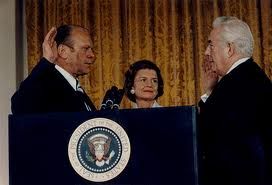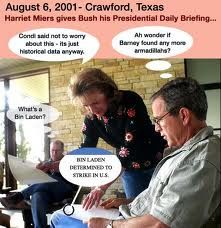This is your morning Open Thread. Pour your favorite beverage and review the past and comment on the future.
Find the past “On This Day in History” here.
Click on images to enlarge
August 10 is the 222nd day of the year (223rd in leap years) in the Gregorian calendar. There are 143 days remaining until the end of the year.
The term ‘the 10th of August’ is widely used by historians as a shorthand for the Storming of the Tuileries Palace on the 10th of August, 1792, the effective end of the French monarchy until it is restored in 1814.
On this day in 1846, Smithsonian Institution was created. After a decade of debate about how best to spend a bequest left to America from an obscure English scientist, President James K. Polk signs the Smithsonian Institution Act into law.
In 1829, James Smithson died in Italy, leaving behind a will with a peculiar footnote. In the event that his only nephew died without any heirs, Smithson decreed that the whole of his estate would go to “the United States of America, to found at Washington, under the name of the Smithsonian Institution, an Establishment for the increase and diffusion of knowledge.” Smithson’s curious bequest to a country that he had never visited aroused significant attention on both sides of the Atlantic.
After the nephew died without heirs in 1835, President Andrew Jackson informed Congress of the bequest, which amounted to 104,960 gold sovereigns, or US$500,000 ($10,100,997 in 2008 U.S. dollars after inflation). The money, however, was invested in shaky state bonds that quickly defaulted. After heated debate in Congress, former President John Quincy Adams successfully argued to restore the lost funds with interest. Congress also debated whether the federal government had the authority to accept the gift. Congress ultimately accepted the legacy bequeathed to the nation and pledged the faith of the United States to the charitable trust July 1, 1836.
Eight years later, Congress passed an act establishing the Smithsonian Institution, a hybrid public/private partnership, and the act was signed into law on August 10, 1846 by James Polk. (See 20 U.S.C. § 41 (Ch. 178, Sec. 1, 9 Stat. 102).) The bill was drafted by Indiana Democratic Congressman Robert Dale Owen, a Socialist and son of Robert Owen, the father of the cooperative movement.


 Heyerdahl and his five-person crew set sail from Callao, Peru, on the 40-square-foot Kon-Tiki on April 28, 1947. The Kon-Tiki, named for a mythical white chieftain, was made of indigenous materials and designed to resemble rafts of early South American Indians. While crossing the Pacific, the sailors encountered storms, sharks and whales, before finally washing ashore at Raroia. Heyerdahl, born in Larvik, Norway, on October 6, 1914, believed that Polynesia’s earliest inhabitants had come from South America, a theory that conflicted with popular scholarly opinion that the original settlers arrived from Asia. Even after his successful voyage, anthropologists and historians continued to discredit Heyerdahl’s belief. However, his journey captivated the public and he wrote a book about the experience that became an international bestseller and was translated into 65 languages. Heyerdahl also produced a documentary about the trip that won an Academy Award in 1951.
Heyerdahl and his five-person crew set sail from Callao, Peru, on the 40-square-foot Kon-Tiki on April 28, 1947. The Kon-Tiki, named for a mythical white chieftain, was made of indigenous materials and designed to resemble rafts of early South American Indians. While crossing the Pacific, the sailors encountered storms, sharks and whales, before finally washing ashore at Raroia. Heyerdahl, born in Larvik, Norway, on October 6, 1914, believed that Polynesia’s earliest inhabitants had come from South America, a theory that conflicted with popular scholarly opinion that the original settlers arrived from Asia. Even after his successful voyage, anthropologists and historians continued to discredit Heyerdahl’s belief. However, his journey captivated the public and he wrote a book about the experience that became an international bestseller and was translated into 65 languages. Heyerdahl also produced a documentary about the trip that won an Academy Award in 1951.
Recent Comments